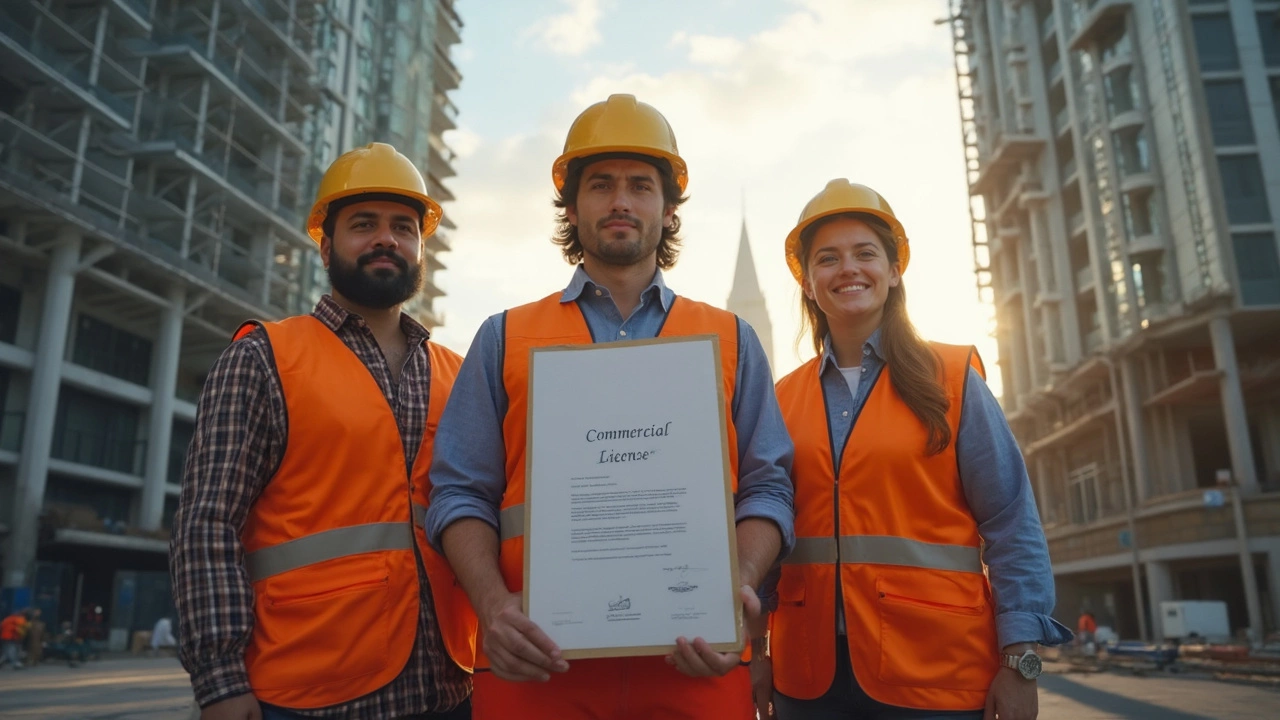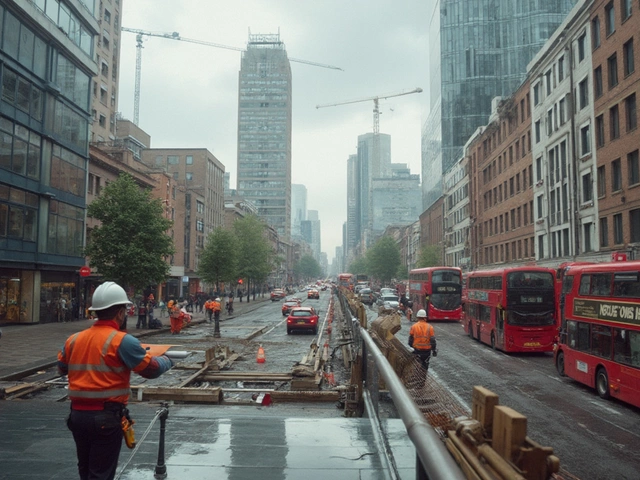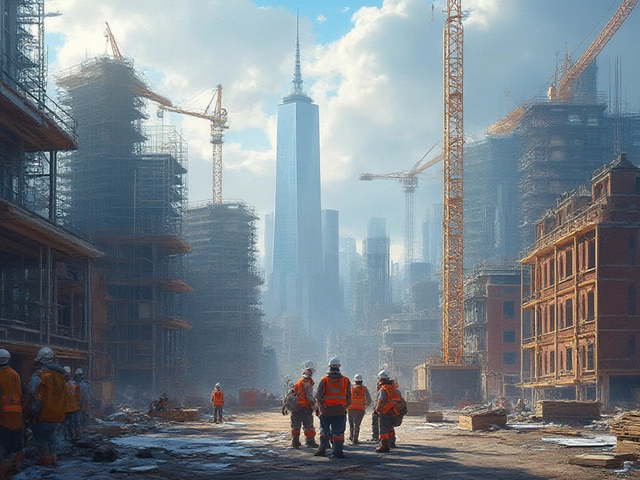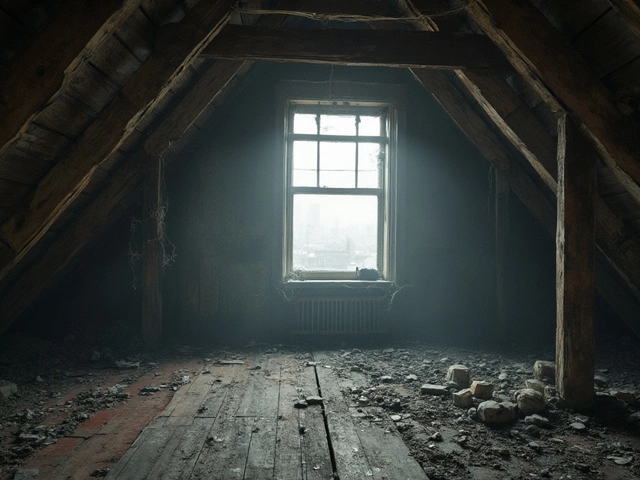If you want to build, remodel, or even touch a commercial building, you need a commercial license. No way around it. This isn’t the same as a handyman license or a general contractor’s permit for homes. States and cities want proof you know your stuff and can follow rules before you start swinging hammers in, say, an office park or a strip mall.
So what does a commercial license actually cover? It shows you’re legit to take on projects where people work, shop, or do business. It covers everything from safety codes to insurance. Without it, inspectors can shut you down, even if you’re halfway through a big job. Worse, you might get slammed with fines or lawsuits if something goes wrong on site. Not exactly a recipe for sleeping well at night.
Don’t let the paperwork scare you. The process isn’t always quick, but it usually pays off. Some cities fast-track licenses for experienced contractors. Others want references, tests, and fingerprints. Either way, getting licensed can actually win you more jobs. Commercial clients want proof you’re not cutting corners.
- What Is a Commercial License?
- Who Needs a Commercial License and Why?
- Risks and Consequences of Skipping the License
- Tips for Getting and Keeping Your License
What Is a Commercial License?
A commercial license is what lets you legally handle construction, repairs, or upgrades in buildings meant for business, not just private homes. If you’re working on projects like office towers, restaurants, medical clinics, or storage facilities, this is the license you need. Cities and states use it as proof that you know the safety codes and can handle the bigger, riskier stuff compared to basic residential jobs.
Why so serious? Commercial projects often involve more complex blueprints, heavier equipment, and stricter laws. Building codes are tougher, and mistakes can lead to big-time liability. Without the right license, you can’t even bid on many commercial jobs. Clients and government agencies won’t touch you unless you’ve got that paperwork sorted out.
Here’s what a commercial license typically covers:
- Structural work for offices, stores, warehouses, factories, hotels, and more
- Commercial electrical, plumbing, and HVAC work
- Major renovations or tenant improvements in business spaces
- Compliance with special commercial construction codes and safety protocols
This isn’t just about following rules. Holding a commercial license usually means you’ve proved your experience, passed background checks, and can show proof of insurance or bonding. In many states, you’ll take an exam on codes and best practices for commercial construction. There’s often a fee, and you might need to renew every one or two years.
Here's a quick breakdown of what states usually require for a commercial license when compared to a residential one:
| Requirement | Commercial License | Residential License |
|---|---|---|
| Written Exam | Almost always | Sometimes |
| Experience (years) | 3-5 | 1-3 |
| Insurance | Higher minimums | Lower minimums |
| Background Check | Usually | Sometimes |
| Job Types Allowed | Offices, retail, industrial | Homes, condos |
With a legit contractor license for commercial work, you’re set for the bigger gigs and higher paychecks that come with commercial construction. Ignore it, and you risk getting kicked off projects, sued, or even charged with a crime, depending on where you’re working. It's not optional—it's the baseline for being taken seriously in the field.
Who Needs a Commercial License and Why?
If you’re taking on construction jobs for anything not meant for living—think offices, restaurants, hotels, warehouses—you probably need a commercial license. This isn’t just a formality. Most state and local governments demand it before they let you touch commercial properties, no matter if your role is general contractor, electrician, plumber, or even specialty trades like HVAC. Without a commercial construction license, you can’t bid or pull permits on these jobs.
Why so strict? Commercial spaces carry bigger risks. You’re dealing with heavy traffic, more complex building codes, and way more safety rules. City inspectors and insurance companies both want proof you’re qualified. If you ignore licensing requirements, don’t expect to land work with legit businesses—they’ll pick a licensed pro every time.
Here’s a quick breakdown of who must have a commercial license:
- General contractors working on any business, retail, or mixed-use property
- Specialty contractors (electricians, plumbers, HVAC techs, etc.) on commercial sites
- Firms or individuals bidding public or government construction jobs
- Anyone doing major renovations or new builds not for private residences
Some states have exemptions for very small jobs, but most don’t mess around. For example, California requires a commercial contractor’s license for any job over $500, even if it’s just fixing a door at a restaurant. In Texas, licenses are required for bigger jobs or for specialty work. If you’re ever in doubt, check your local building department’s website or make a quick call—you don’t want to gamble on this.
Just to get specific, here’s a quick look at a few key states and their basic licensing rules:
| State | Commercial License Threshold |
|---|---|
| California | Required for jobs $500+ |
| Florida | Required for all commercial work |
| Texas | Varies by city; specialty trades always need it |
| New York | Required in NYC and most counties |
The bottom line? If you want to do business in commercial construction, play by the rules. Having that license puts you in the running for bigger jobs, protects you from nasty legal issues, and shows clients you’re the real deal. Don’t try to sneak by—sooner or later, it catches up.
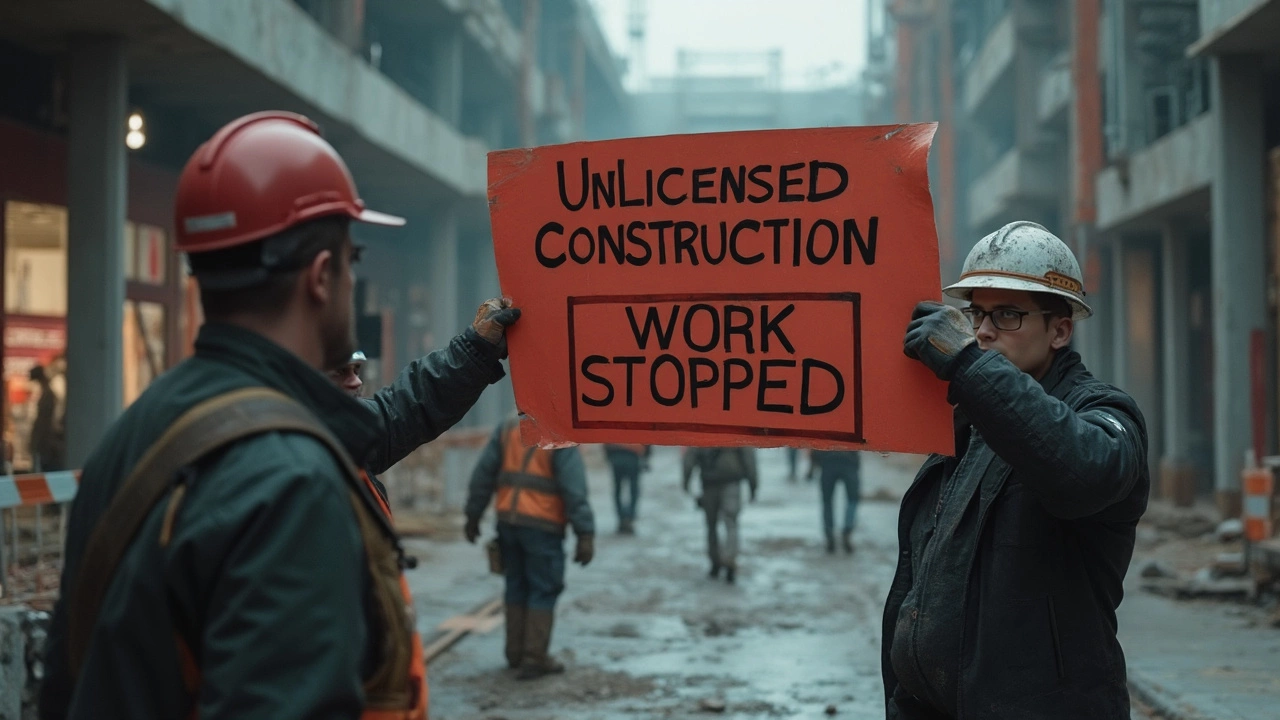
Risks and Consequences of Skipping the License
Thinking you can skip out on a commercial license and no one will notice? Think again. Building inspectors are quick to spot unlicensed work. In a lot of states, it’s actually illegal to even bid on commercial construction without the right paperwork.
Here's what you’re really risking:
- Fines that'll sting. Penalties for unlicensed commercial construction can run anywhere from a few thousand up to $50,000, depending on where you’re working and how big the project is. In California alone, contractors caught without a license face fines up to $15,000 for each offense.
- Job shut-downs. Inspectors can halt your project on the spot. Deadlines get blown, crews go home, and everybody’s angry. Sometimes you get stuck eating labor and material costs for unfinished work.
- Lawsuits. If someone gets hurt on your site and you’re unlicensed, insurance companies might bail. That means you could be personally on the hook for injuries, accidents, or property damage.
- No way to get paid. In many places, you legally can’t collect payment for jobs you do without a commercial license. Some states even let clients sue to get their money back—long after everything’s built.
- Criminal charges. Repeat offenders can face misdemeanor or felony charges. Jail time isn’t unheard of, especially if someone was injured or large sums of money are involved.
Check out these real stats:
| State | Possible Fine for Unlicensed Work |
|---|---|
| Texas | Up to $5,000 per violation |
| California | Up to $15,000 per offense |
| Florida | First offense up to $10,000 |
| New York | Jobs shut down; fines depend on local laws |
The headaches don’t stop with just money. Get caught, and your business name can land on public ‘bad contractor’ lists. Good luck landing decent commercial jobs after that.
Tips for Getting and Keeping Your License
Landing a commercial license the right way can save you way more hassle than you’d think. Start by double-checking what your state or city law actually requires. No two places are exactly alike—Arizona and California have their own applications, fees, and qualification tests, but even within those states, counties might add a few hoops. Don’t rely on what your buddy said he did last year. Check the newest requirements on your local government’s website.
Pepare these basics before you apply:
- Proof of experience—usually two to four years in commercial construction
- Reference letters from recent projects
- Passing a contractor’s business and law exam
- General liability insurance (at least $1 million is common)
- Bonding, especially if you’re bidding on public jobs
Some states, like Florida and Texas, require fingerprints and even background checks to weed out fraud. But don’t stress if you’ve had a traffic ticket. They’re mostly watching for recent financial crimes or unrevealed bankruptcies.
Once you’ve got your contractor license in hand, keeping it isn’t hard if you pay attention:
- Renew annually—most licenses expire every year, and late fees can pile up fast.
- Keep up with continuing education—many places make you take a few hours of updated code classes every year.
- Don’t let your insurance or bond lapse. Clients and city inspectors notice fast if your coverage drops.
- File your required reports, like payroll or safety logs, on time if you work on public contracts.
Fun fact: in 2023, California’s Contractors State License Board denied more than 1,500 applications just for missing tax records or insurance paperwork. Don’t be in that group. Create a digital folder for your license, renewal reminders, and scanned copies of your documents. If you ever get audited by an inspector or asked by a client, you’ll look way more professional.
Bottom line—treat your commercial license like it’s your best tool on the job. It’ll open doors and keep you clear of trouble.
